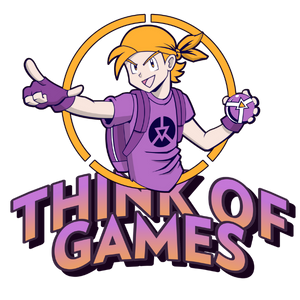 Over the last couple of years, some trends have utterly changed the players’ interaction with their favorite titles, revolutionizing the gaming experience. Traditional platforms—like consoles and PCs—are still doing well; however, a new player seems to emerge in the form of cloud gaming services. These are the places where users stream games directly into their devices, which eliminates the need for powerful hardware or pesky downloads. But is cloud gaming actually the future, or is it a hubbub that will also pass?
Over the last couple of years, some trends have utterly changed the players’ interaction with their favorite titles, revolutionizing the gaming experience. Traditional platforms—like consoles and PCs—are still doing well; however, a new player seems to emerge in the form of cloud gaming services. These are the places where users stream games directly into their devices, which eliminates the need for powerful hardware or pesky downloads. But is cloud gaming actually the future, or is it a hubbub that will also pass?
What Is Cloud Gaming?
Cloud gaming, often referred to as game streaming, allows gamers to play their favorite games directly from a server on their phone, tablet, smart TV, or even an average-powered laptop. But instead of requiring expensive gaming consoles or the latest computers, all the heavy lifting of running the game falls to remote servers. All that is needed is a stable internet connection, and you can easily play the latest titles without ever having to be anxious about whether your device can support them.
For those who enjoy the thrill of competitive gaming, cloud platforms also offer access to esports and betting opportunities. You can read more about betting options and even place a bet on your favorite teams while enjoying the flexibility that cloud gaming offers.
Think of it as Netflix but for games. Rather than downloading a game onto your system and natively running it, you’re streaming it live from a cloud server. Processing, the controls, graphics, and gameplay remain on the cloud, while only a few packets of data return and forth between the player and the server. It’s a concept that has blown open the world of gaming to a wider audience, breaking down hardware barriers and democratizing access to it.
Cloud Gaming Challenges
However, this is not without any pitfalls. The most important factor, of course, is access to a fast and stable internet connection. Any lag in or disruptions to the connection can lead to a lessened experience during gameplay: either the game feels laggy or latent, or the graphics are downscaled. This can be frustrating, especially in fast-paced games where quick reactions are essential.
Another point is data consumption. The high-quality streaming of games can consume considerable data and may not bear it, especially in cases when users have fewer plans or stream the games on mobile phones. Unlike the streaming of a movie in which buffering is considered negligible, in very few cases, there has to be a continuous flow, such as in games.

Not all games are on cloud services. While major cloud services offered, such as Xbox Cloud Gaming, PlayStation Now, and NVIDIA GeForce Now, boast a fair number of titles, some popular or older classics may be off-limits. Their game archives are getting larger all the time, but they are still nowhere near as big as those for traditional console or PC gaming.
Cloud Gaming Services to Keep in Mind
Several have risen to the fore, each offering something a little different:
- Xbox Cloud Gaming: A part of Xbox Game Pass Ultimate, it streams a wide variety of games on numerous devices. It has a robust library and is great for players already in the Xbox ecosystem.
- PlayStation Now: This is Sony’s cloud gaming platform that opens up a huge library of diverse PlayStation games, including exclusives. Overall, it is a pretty great way for fans of the PS series either to replay the classics or try something new.
- NVIDIA GeForce Now: Some services specialize in PC games by allowing their subscribers to stream any games they own from a service like Steam or the Epic Games Store. Ideal for players who want high-end performance without upgrading their hardware.
- Amazon Luna: Being a relatively new entrant in the cloud gaming space, it brings in a hand-picked selection of playable games on the platform for a monthly fee. Though still in its development, this is one to keep an eye on, especially for Prime members who want an integrated experience.

For now, it’s a great option and an alternative to traditional gaming setups for people who need access to an easy, flexible way of playing. So, is it the future? It very well could be—just make sure your internet connection is up to speed.




















